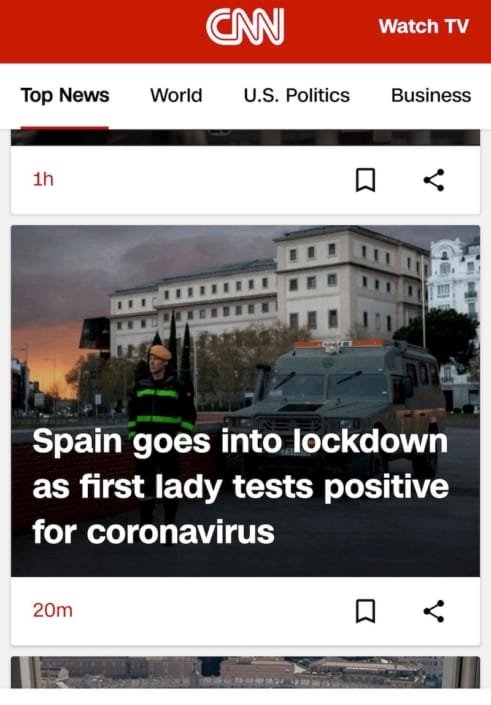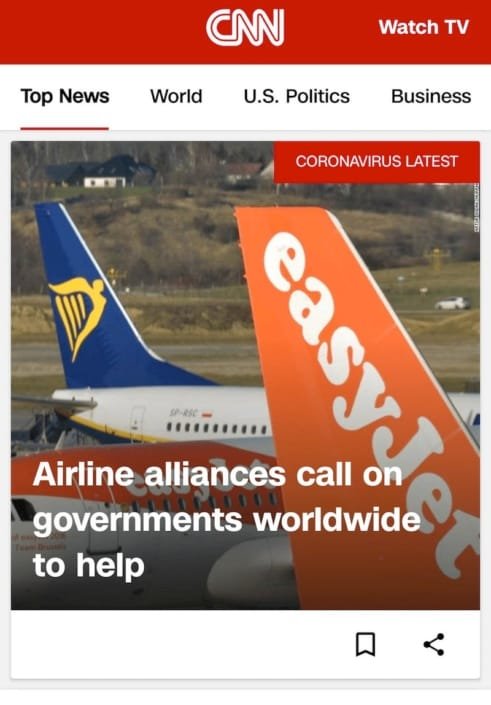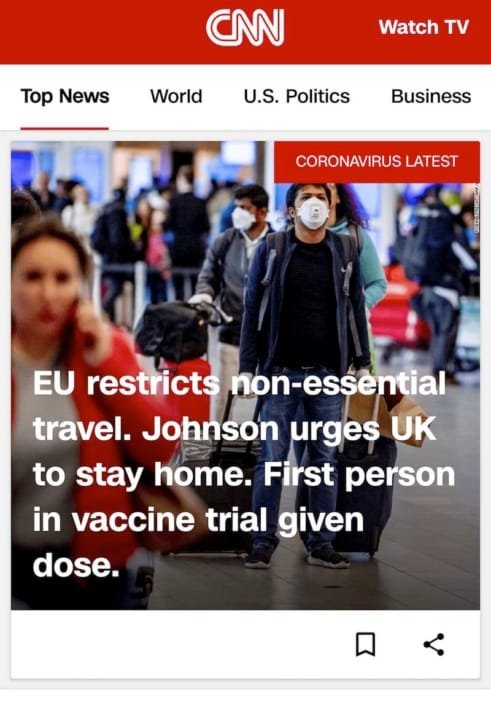Going Home in the COVID-19 Pandemic
March 16th marked the tenth day of my visit to the United States, and it was hard to believe how much the world had changed in that short period of time. It was a travel day for me, actually a pair of travel days as I was scheduled for a train ride from Irvine, California south to San Diego, then a flight to Los Angeles before an overnighter to London, then on to Lisbon.
The headlines that greeted me via my smartphone were even worse that when I wrote my previous blog post about Storylistening and the COVID-19 Pandemic. The BBC announced “Global coronavirus infections outpace China cases“, “Germany latest country to close borders”, “Stocks plunge despite global central bank action“, “Airlines cancel most flights as coronavirus spreads” while CNN offered their own spin on things.
I felt like I was living in a James Bond movie. One where the ammunition factory was about to blow up, and the steel doors are closing as Bond sprints across the room and leaps through at the last second and the building behind him explodes in a ball of fire.
Okay, maybe not quite that dramatic, but the odds of my reaching Portugal seemed to be diminishing. And what would the world look like when/if I made it? Some governments were moving quickly – Italy had already declared a state of emergency – while others were taking a go-slow strategy, with Britain’s chief science adviser opting for their “herd immunity” strategy.
In America, Donald Trump was heard to quip, “Relax. We’re doing great. It all will pass.”, while the Director of the National Institute of Allergy and Infectious Diseases, Anthony Fauci stated, “As I’ve said many times, and I’ll repeat it: The worst is, yes, ahead for us.”
There were few seats open in the boarding area for the London flight from LAX. Less than 10 percent of the passengers were wearing face masks, and most of them were nonchalant about the necessity. There was the thirty-something couple hugging and kissing. She wore a mask, but he didn’t. The family of four in front of me was split along gender lines, with the mother and daughter masked, father and son without. One young man had his mask around is throat, while an older woman had pulled hers down to where it was hanging from her chin. America was not yet with the program, and the president did not seem to give a shit.
After 35 hours of Uber, train, bus, flight, flight, flight, metro, metro, ferry, train, taxi I made it home with a small sack of groceries. I had to stand in line dragging two suitcases, then do my shopping wearing plastic gloves, but it illustrated that Portugal was taking things seriously. America, not so much. The following day Portugal declared a state of emergency. They were definitely serious about dealing with this health crisis.
So now I’m sequestered at home, other than walking to the market for groceries. The count of infections and deaths continues to rise. I sit here on the couch, still contemplating what my future looks like, what will happen to my community, to my friends and family, to the billions of people who I don’t know but who are dramatically affected by COVID-19.
All of us have some measure of control in how we act, but in the grand scheme of things, are largely dependent upon decisions of world leaders who may, or may not, make the right call. Who may, or may not, pay attention to the science. Who may, or may not, let money be their guiding force. Who may, or may not, let politics get in the way of what’s best for the planet.
What’s your world like, how have you experienced the pandemic? What stories are you living, and more importantly, what stories are you capturing in the moment. The stories that you’ll want to tell your young children when they’re old enough to understand. The stories you will want to remember when you make decisions on what to buy, where to go, who to vote for, and how to treat others in the world. Yes, those stories.
contact me to discuss your storytelling goals!
◆
Subscribe to our newsletter for the latest updates!
Copyright Storytelling with Impact – All rights reserved







